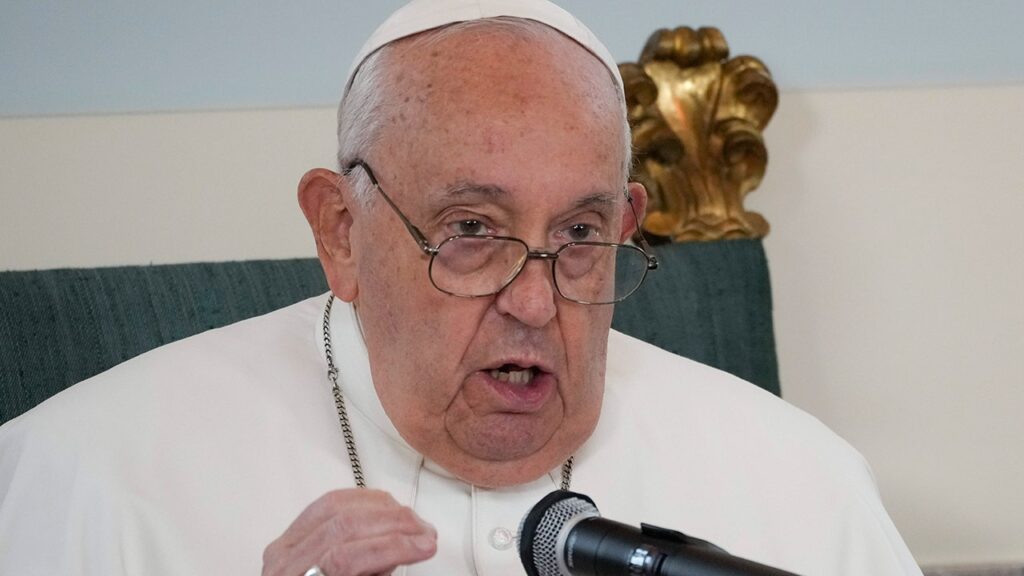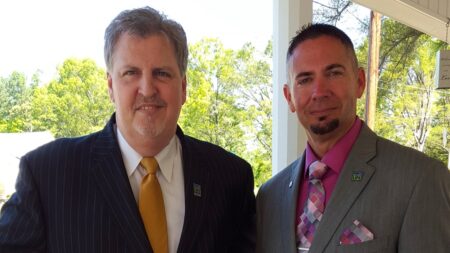**Pope Francis’ Health Condition and Speculation about His Future**
Pope Francis has found himself hospitalized for an extended duration, marking the longest stay of his papacy, surpassing two weeks now. As reports from the Vatican indicate a slow but steady improvement from his health issues, specifically severe bronchitis and double pneumonia, speculation surrounding his possible resignation has begun to circulate. The atmosphere of uncertainty and concern within the community of faithful has been palpable, as millions around the globe pray for the swift recovery of the 88-year-old pontiff.
Amidst the waves of speculation and the rumor mill perpetuated by Vatican observers, papal historian and biographer Austen Ivereigh has stepped forward to quell these doubts. He emphasizes that, while Pope Francis did draft a secret letter of resignation at the outset of his election as bishop of Rome, he firmly believes that the papacy is a lifelong commitment. “For him, the papacy is for life,” Ivereigh reiterated during an interview with Fox News, highlighting the pontiff’s conviction that despite health challenges, his role is ordained for the duration of his life.
Ivereigh elaborates on the significance of this perspective in today’s culture, which he perceives as increasingly obsessed with youth and health. In a world where many envy vitality, the papal historian asserts that it’s essential to recognize a mission from God that is enduring, reinforcing the idea that even frailty has its purpose. As Pope Francis continues to endure health challenges, the community in St. Peter’s Square remains vigilant, with nightly rosary vigils led by a cardinal keeping hope alive for his recovery.
The sentiments of anxiety related to Pope Francis’s health echo historically due to the precedent set by his predecessor, Pope Benedict XVI, who made the unprecedented decision to resign in 2013. This historical backdrop has amplified fears among certain factions of the Catholic faithful about the potential for similar occurrences now. Speculation is not solely confined to supporters; there are those who openly voice their wish for the pontiff to step down, showcasing the political nature of the papal position.
Among the critics of Pope Francis, Bishop Joseph Strickland stands out. He openly condemned the current papacy in an open letter to the College of Cardinals, wherein he urged them to deliberate carefully in the next conclave. Strickland’s criticisms stem from a contentious relationship following his removal from his diocese post-2018, following his public dissent against the Pope’s leadership style. In his correspondence, Strickland expressed concern about the integrity of the upcoming conclave, cautioning against the election of a candidate that does not align with divine law as he interprets it.
Strickland’s description of potential candidates reflects the broader apprehensions of certain factions within the Church, arguing that any candidate suspected of heretical views should not be permitted to ascend to the papacy. His comments illustrate an underlying schism in the Church, tapering off into discontent with the direction in which Pope Francis has been steering the Church.
However, Ivereigh fervently defends Pope Francis, portraying him as a figure embodying the essence of Jesus – a leader who navigates between truth and love. He states, “He proclaims the truth, and at the same time he heals and loves,” asserting that the Holy Father’s approach to leadership incorporates both the tenets of the faith and a compassionate understanding of humanity.
Over his twelve-year tenure, Pope Francis has dramatically reshaped the Catholic Church’s relationship with its global community. Notable achievements include significant reforms in the Vatican Bank, broadening the geographical diversity of the College of Cardinals, and elevating women to prominent positions within the Vatican, exemplified by Sister Raffaella Petrini’s appointment as president of the Pontifical Commission for Vatican City State.
Even while recovering from his illness at Gemelli Hospital, Pope Francis remains committed to the operations of the Vatican, albeit at a slower pace due to his health. Ivereigh, having worked closely with the Holy Father, believes that this health crisis will eventually pass. He anticipates that Pope Francis will return to his residence at Santa Marta, where he will likely undergo a lengthy convalescence. Undoubtedly, the prayers and hopes of millions hang in the balance, waiting for their beloved pontiff to fully recover and continue his mission.











